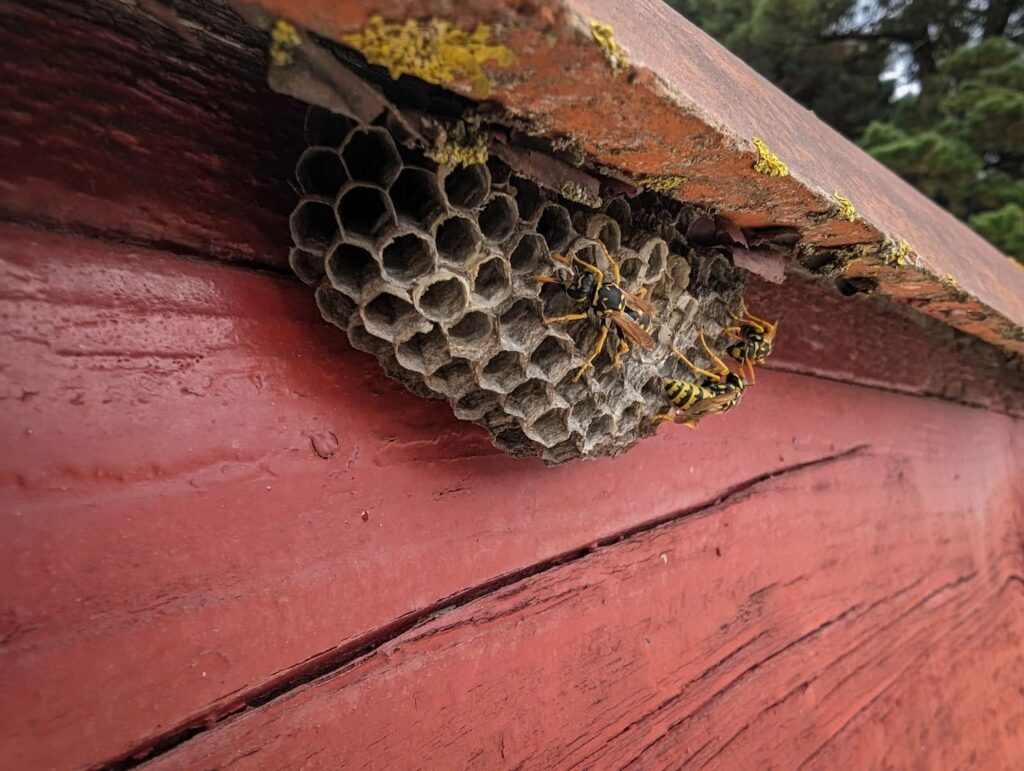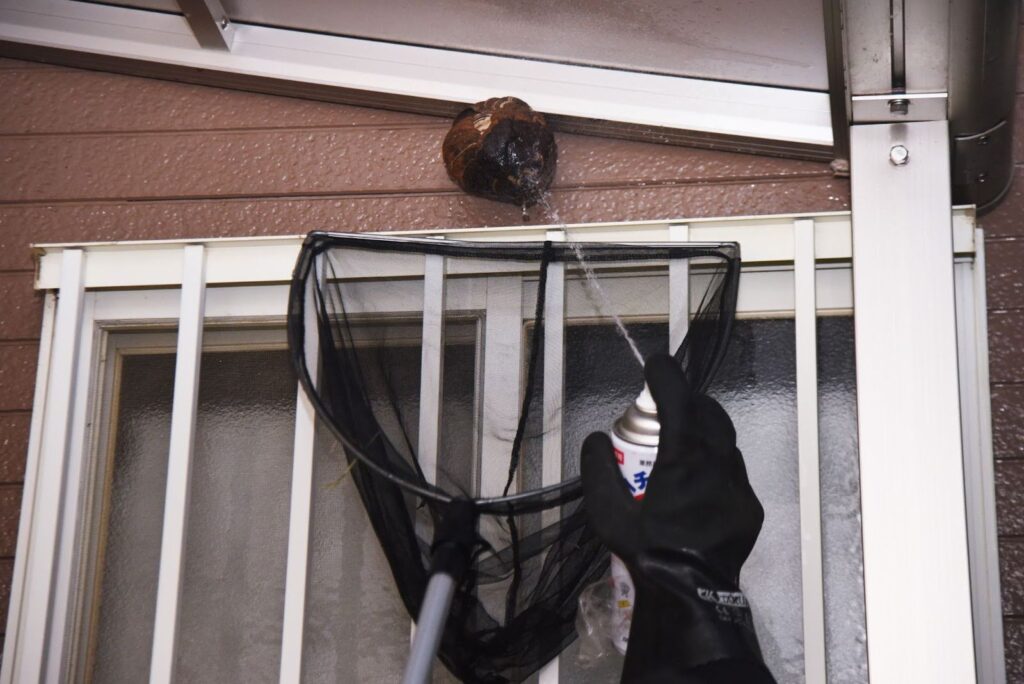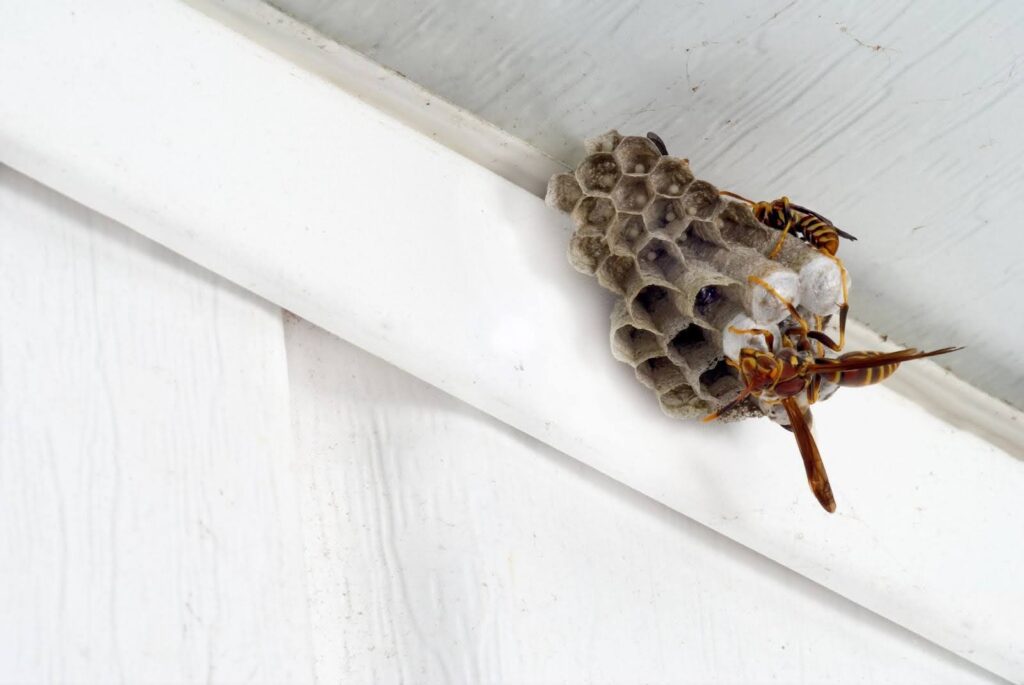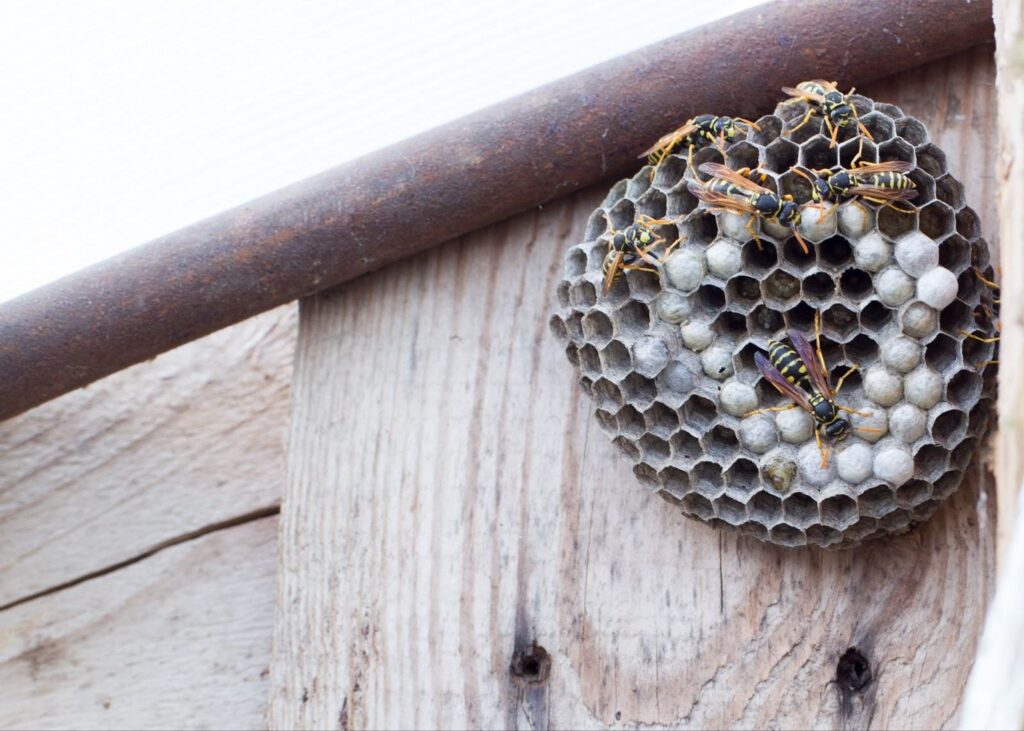If you’ve been dealing with stinging pests around your home or garden, you might be wondering, “when is the best time to spray a wasp nest?”
After the bone-chilling winters we have to put up with here in Columbus, Ohio, our springs are a welcome relief. Your backyard becomes a perfect spot for outdoor brunches, flowers bloom on the Franklin Park Conservatory grounds, and the Scioto Mile starts buzzing with activity.
But as the weather heats up, there’s one other kind of buzzing we have to think about, and it’s not a good one: wasps.
If you’ve noticed a nest growing on or near your home, you might be wondering, “When is the best time to spray a wasp nest?”
Don’t reach for that can of spray just yet. We’re here to break down the ideal timing and why calling in Green Shield is often your safest bet.
When is the Best Season to Spray a Wasp Nest?

Understanding wasp behavior is the first step in safely and effectively removing a nest. Spray too early, and you risk not eliminating the entire colony. Act too late, and you’ll face an army of angry wasps.
In general, the best time to spray a wasp nest is during late spring or early summer. At this stage, the nest is relatively small, and the queen hasn’t laid enough eggs to create a large, defensive colony. By late summer and fall, the population will have peaked, making removal riskier.
Here’s a fun fact for you: only fertilized queen wasps survive the winter. They begin building nests in spring, laying eggs to grow the colony. By addressing nests early in the season, you interrupt this cycle and prevent hundreds (or thousands) of wasps from hatching in the months ahead.
What is the Best Time of Day to Spray a Wasp Nest?

Wasps are most inactive during the early morning hours before the sun gets too bright.
This is because wasps tend to rest and regroup inside their nests during cool mornings or late evenings. Spraying during these times increases the likelihood that more wasps are inside, thereby boosting the efficacy of your treatment.
Here’s another important fact for you to know: wasp venom contains a pheromone that triggers aggression in other wasps. Get stung by one wasp who feels threatened, and the entire colony is likely to swarm. Another reason why early morning spraying is safer!
Is DIY the Right Choice?

Spraying a wasp nest may sound simple, but it comes with serious risks. Without the right tools or expertise, you might do more harm than good. Here’s why hiring a professional pest control service like our team at Green Shield is often the better choice:
- Safety Risks: Wasps become highly defensive when you disturb their nests. Even if you’re wearing protective gear, multiple stings can cause painful reactions or, in severe cases, allergic reactions. Do you really want to take that chance?
- Limited Effectiveness: Sprays sold over-the-counter may not penetrate large nests effectively, leaving hidden wasps unharmed and ready to regroup. Professional-grade treatments reach all corners of the nest, ensuring no survivors.
- Hard-to-Reach Locations: Wasp nests often appear in high or concealed areas, such as gables, tree branches, or cracks in walls. Our eco-friendly pest control methods tackle these tricky spots without putting you in danger.
How do you know if you need to call in reinforcements? For the most part, it’s better to be safe than sorry. That’s especially true if the nest is unusually large, active, or located in a high or hard-to-reach area.
Similarly, call pest control if you see signs of multiple nests across different parts of your property, or if you or a family member has experienced a severe reaction to wasp stings in the past.
Protect Your Space Today
At Green Shield, we use eco-friendly and pet-safe methods to remove wasp nests safely and effectively.
Our step-by-step process includes a thorough inspection of your property to locate nests and wasp traffic, as well as the creation of a customized removal plan based on the nest’s size and location. We also check your home’s exterior for potential entry points and help seal them to stop wasps from returning.
Don’t wait for wasps to crash your next backyard barbecue! At Green Shield, we specialize in safe and effective pest control services for Columbus, Ohio, homeowners.
Whether it’s a growing wasp nest or preventative maintenance, we’ve got you covered with our comprehensive solutions. Book a consultation today.
FAQ
What happens if I leave a wasp nest alone?
Most wasp nests naturally die off in the winter, but lingering nests can attract new queens come spring. Removing the nest proactively prevents future infestations.
Is your wasp removal treatment safe for pets and kids?
Yes, Green Shield uses eco-friendly solutions that are 100% safe for your family, pets, and local environment.
How do I prevent wasps from building nests in the future?
Sealing cracks and covering small openings in your home’s exterior, like in the siding, can help discourage nest-building. Our team will provide recommendations following your treatment.
